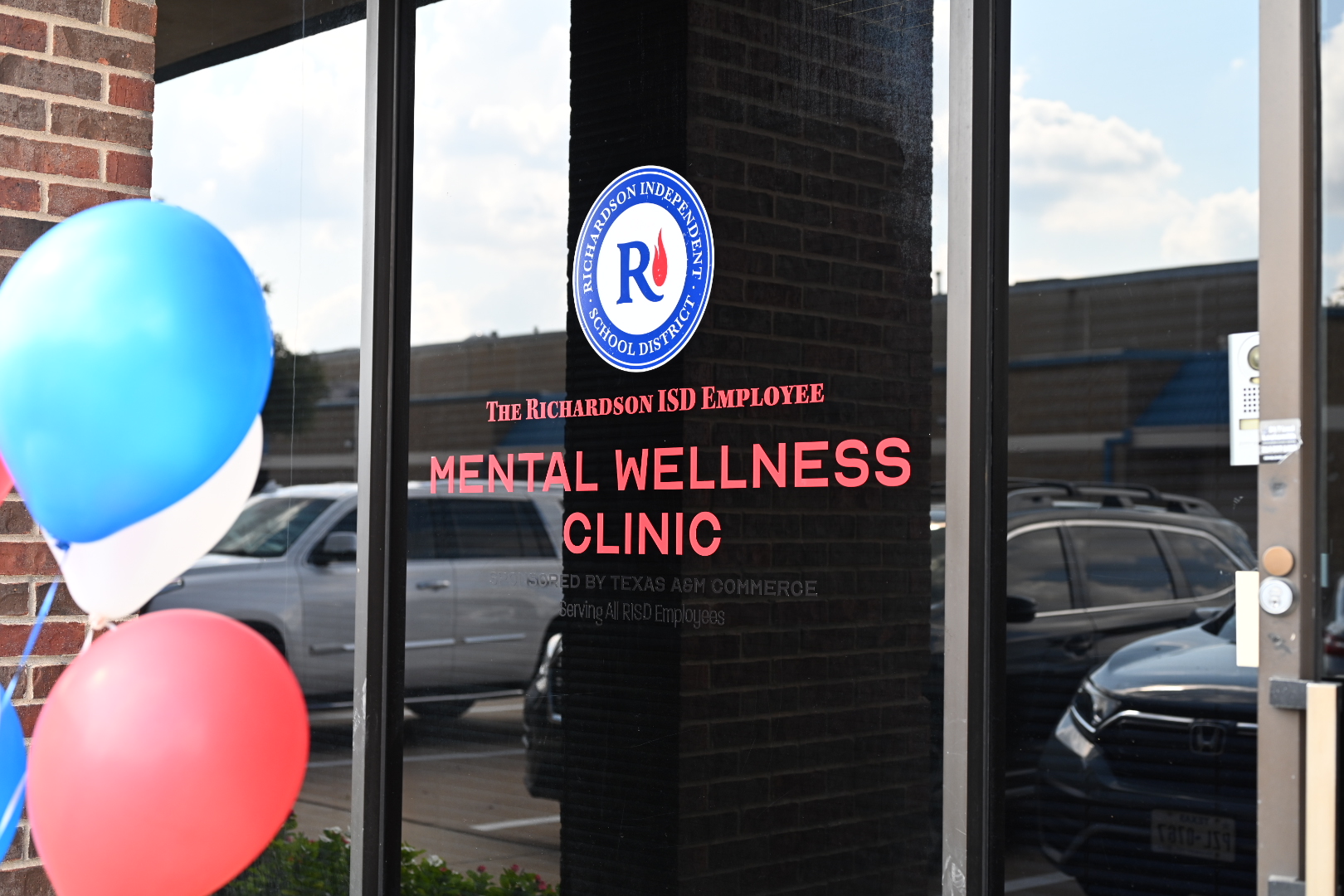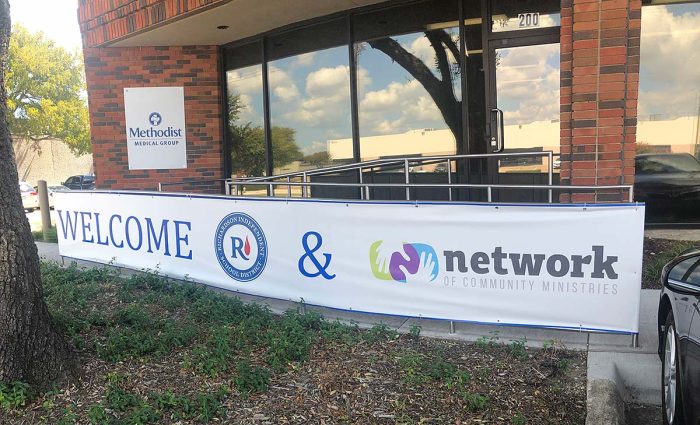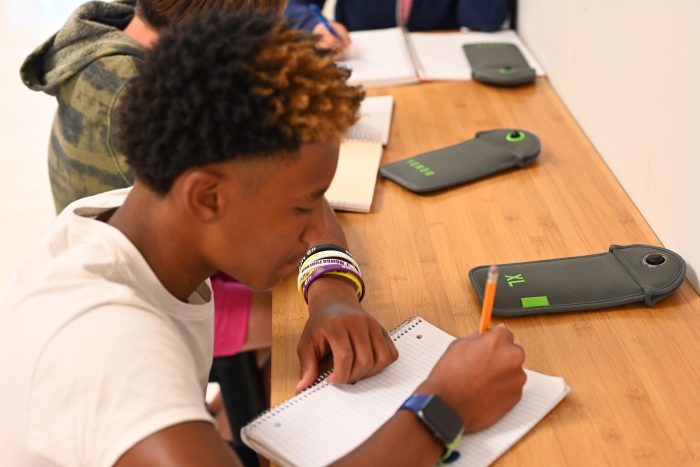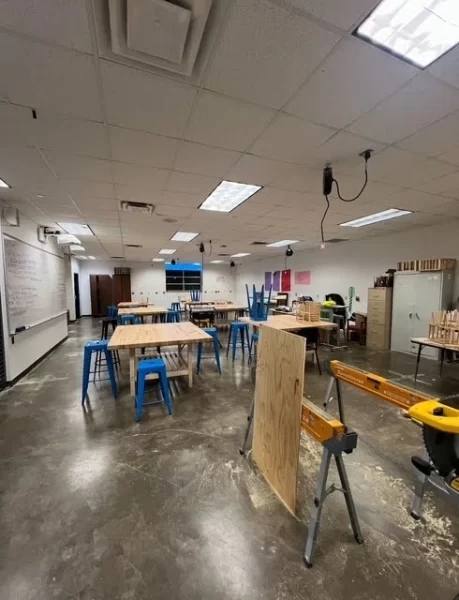Richardson ISD’s Commitment to Mental and Emotional Wellness
How the District is Cultivating Resilience, Support, and Growth for Students’ Well-Being
Note: School district information provided by Richardson ISD.

Adolescents’ mental health challenges range from mild to life-threatening. Anxiety and depression can lead to rapid and unexpected changes in mood, decreased school attendance and incomplete school work. Social withdrawal can exacerbate isolation and loneliness. And in some extreme cases, depression can lead to suicide.
Behavioral disorders such as attention deficit hyperactivity disorder (ADHD) also impact success in school and life and can be characterized by difficulty paying attention and/or excessive activity and action with little or no regard to consequences. Eating disorders can affect physical health and often co-exist with depression, anxiety and substance use disorders.
Students dealing with mental health challenges without the support of a parent, teacher, doctor or mental health professional can begin risk-taking behaviors to cope. Self-harm, sexual risk-taking, illicit drug use and suicide are all potential outcomes without intervention and school districts across the country are dedicating time and resources tomeetthese21stcentury challenges. Richardson ISD is aggressively addressing the need for both students and staff to have adequate mental health services. In 2022, the RISD board of trustees adopted the Graduate Profile, a document that includes the academic, personal and interpersonal competencies that all RISD students should possess upon graduation. The profile features five key competency areas: financial literacy, critical thinking/problem-solving, real-world connections, effective communication and emotional intelligence.

District Also Addresses Physical Well-being
In partnership with Methodist Medical Group, RISD also has an Acute Care Clinic for all employees and their immediate family members. The RISD Acute Care Clinic, located in the Network of Community Ministries building, is for all full-time RISD employees and their dependents aged 25and under. There is a $10 co-pay to visit the clinic and no medical insurance is required.
Acute care is currently provided for:
- Strep throat
- Flu
- Bladder infection
- Pink eye
- Infection (ear, nose, throat)
- Minor Wounds/abrasions
- Joint sprain
- Skin conditions (poison ivy, ringworm, acne)
The emotional intelligence competency directly relates to students’ mental and emotional well-being. The goal of this portion of the Graduate Profile is for each student to:
- Develop a positive self-worth and increase belief in one’s self and one’s capacity to thrive indifferent situations.
- Advocate effectively for self and form resiliency in the face of adversity.
- Value others (cultural awareness, being open-minded).
“Our district’s North Star Goal is for every student, teacher, and leader to meet or exceed their academic growth goal. To support this goal, we need to ensure our students and staff have the tools, resources and supports to teach and learn at the highest level.”
-Superintendent Tabitha Branum
RISD administrative leaders recently addressed the following questions:
What types of mental health services are currently available for students in the district?
All students have access to their school counselor to receive support for their mental health. All secondary students also have access to an intervention counselor who specifically works with students on mental health-related concerns. Some campuses also have a social worker who works on mental health-related concerns and focuses on connecting students and families to resources. All students also have access to TCHATT, or telebehavioral health services through Children’s Health, which allows students to have free counseling with a therapist virtually during the school hours (with parent approval).
How can students or parents request access to mental health services?
Students can request to see their counselor by stopping by the counseling office or filling out an online request form. They can also email their counselor as well. Parents can call their child’s counselor or email them; however, email is preferred as the counselors will be working with students during the day and may not be able to make a phone call.
What mental health education or awareness programs are provided for students and staff?
School counselors provide various lessons on mental health through guidance lessons at all levels. These lessons are provided by counselors at the elementary levels at different times throughout the day, usually going into all classes twice a month. At the secondary level, shorter lessons are provided during the advisory time at least once a month.
What kind of training do teachers and staff receive to recognize and respond to signs of mental health challenges in students?
Every year, teachers are trained to recognize the signs of students who are struggling and are equipped with the information to make sure they get the help they need.
Do you partner with any community mental health organizations or providers? If so, can you explain how the partnerships work? If not, are there any plans to find partnership opportunities?
We have many partnerships in Richardson ISD and we work with our community partners to provide additional services to students free of charge based on need at either the campus or individual level. Our partners in mental health include Children’s Health, the Grant Halliburton Foundation, Mental Health America of Greater Dallas, Youth 180, Journey of Hope, Ardyn Hope, the JED Foundation, Meadows Mental Health Policy Institute, Rainbow Days, Trauma and Grief Network, and Metro care. The district also has a partnership with East Texas A&M University to provide a Mental Wellness Clinic for all employees. The Mental Wellness Clinic offers eight free counseling session for RISD employees. For more information about RISD’s mental health initiatives and counseling services, visitrisd.org.

Yondr Pouches Promote Mental Health& Optimal Learning
Information provided by Richardson ISD.
Students’ use of personal electronics continues to challenge all school districts. However, thanks to Superintendent Tabitha Branum, eight of Richardson ISD’s campuses have embraced an innovative way to “mitigate educational distractions precipitated by the use of cell phones, smartwatch, and wireless headphones and ear buds during instructional time” and to “promote an optimal learning and social atmosphere within Richardson ISD.”
These select campuses now utilize Yondr pouches, a magnetic pouch that locks away personal electronic devices to prevent access before the school day ends. Students carry the Yondr pouches daily and are expected to return them in good condition at year’s end.
At campuses utilizing Yondr pouches, the system has dramatically and positively impacted both the learning environment and students’ mental health. According to Dontarious Johnson, RHS Class of’25, “With the Yondr pouches, I haven’t seen any teachers having to stop their instructional time to address students because they were on their cell phones…it has made kids be more willing to be attentive to the environment they are in.”
States Lake Highlands High school principal Kerri Jones, “It’s been life-changing. We could never go back and I hope we never do go back because the campus has just changed. There isa sense of calm about the campus that we hadn’t seen before. During passing periods kids are talking…It’s a positive environment right now. No one is really worried about a cell phone.”
To learn more about RISD’s cell phone policy and the use of Yondr pouches, visitweb.risd.org/studentservices/cell-phone-guidelines/#yondr.
Yondr Campuses
- Berkner High School and STEM Academy
- Lake Highlands High School
- Pearce High School
- Richardson High School
- Apollo Junior High
- Liberty Junior High
- Forest Meadow Middle School
- Lake Highlands Middle School






0 Comments